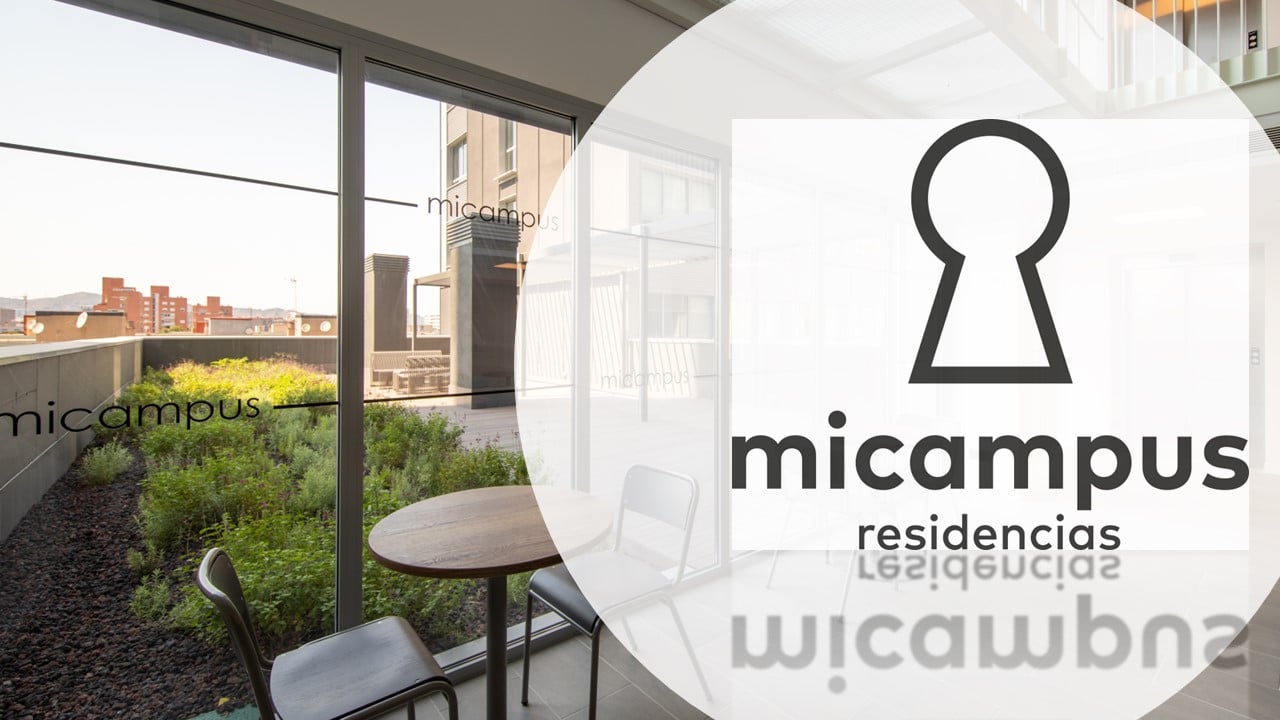
Madrid-based Stoneshield Capital is growing its MICAMPUS student accommodation platform in under-supplied European markets and seeking investors from diverse global regions.
SHURE Iberian Peninsula Showcase: Stoneshield Capital and micampus Approach European Housing Shortage
July 9, 2023
Madrid-based Stoneshield Capital is scaling its MICAMPUS student housing operator platform in the Iberian Peninsula countries of Spain and Portugal, and throughout Europe.
Stoneshield Capital operates in several industries including student housing, digital asset infrastructure, life science ecosystems, finance platforms or living platforms amongst others. Stoneshield is looking to attract institutional investors from North America, EMEA and Asia and will be participating in SHURE: Europe Emerging Markets & Global Capital Connection on October 10 in Zurich.
Stoneshield’s Micampus Residencias is one of the largest Spanish PBSA platforms, with a portfolio of 8,000+ beds (2,000+ operational) across main university campuses in 16 Spanish cities.
To understand growth of the housing for student accommodation industry in the Iberian Peninsula, The SHURE Initiative interviewed Pablo Lopez-Bravo, Acquisition Manager for Stoneshield Investment Funds on 6 July.
SHURE: It's a delight to have Pablo here. Good morning, Pablo.
PLB: Good morning.
SHURE: Please describe enrollment trends in Spain and Portugal, the Iberian Peninsula region, pre and post pandemic. What have you observed at Stoneshield with overall enrollment growth?
PLB: I would start by saying that Spain and Portugal (together, the Iberian market) have proven to be one of the most attractive regions for students in Europe, due to several reasons.
The first one is that we have had a very positive macroeconomic environment in the recent years: positive trends in terms of GDP growth, (above the European average); Spain and Portugal have been among the countries with the lowest inflation levels in Europe; falling trends in terms of unemployment; a very healthy bank system (current loan to deposits ratio much lower than in 2007, for example. Also, Spain has limited exposure to commercial real estate loans, much lower than the United States).
On the other hand, Spain and Portugal have very solid university systems, with plenty of universities among the best in Europe and in the world according to numerous rankings (such as the Times Higher Education or Shanghai rankings).
In these countries the cost of education is very cheap. The public universities in Spain and Portugal are very affordable: the annual tuition fee is less than 1,000€. Furthermore, there are lots of scholarships granted to students to cover total or partially the study costs.
Additionally, Spain and Portugal have great weather conditions, great connections, a large leisure and gastronomical offer, a cheap cost of living, good quality of life, etc. that are factors considered by international students when going abroad.
All of these factors have led to a significant growth of both, total and international students, in the recent years. For example, in Spain, total enrollments have grown by 1.6% since 2015. In Portugal it’s a bit more, the yearly enrollment growth has been of around 2.8% since 2015.
Regarding internationals, we observe that the growth has been much more significant: the growth has been of around 9% per year since 2015 proving that the Iberian Peninsula is becoming a very popular destination for foreign students.
SHURE: You’ve raised our interest in Spain and Portugal, which make up the Iberian Peninsula. For our readers, could you describe the synergy and common threads between Spain and Portugal. Investors outside of Europe think of Spain and Portugal as very different markets, but this may not necessarily be true?
PLB: It is true that there are differences between both countries: Spain is much larger than Portugal in terms of total students (1.7 million students vs 500,000); the international students' profile is much different in both countries. Spain receives a lot of South Americans and Europeans while Portugal receives a lot of Brazilians and former Portuguese colonies students such as Angola or Mozambique, for example. But on the other hand, there are lots of similarities between both markets: in both countries the enrollments are boosting; both markets (together with Italy) are the most undersupplied market in Europe; both are top destinations; both have similar university systems; in both countries the cost of living is very affordable, etc.
It is true that there are differences, but we see Spain and Portugal as a unit (we even share territory, the Iberian Peninsula as you mentioned) and with a lot of potential synergies between each other.
SHURE: Is the level of student accommodation development and investment activity in Spain similar to the United Kingdom, Germany, or other European countries?
PLB: In the last years the living sector have turned into mainstream in Europe, not only in the UK or Germany, but also in Iberia. For example, living sectors represented around 40% out of the total invested capital in real estate in UK in 2022 - very similar to Spain and Portugal’s levels during the same period.
Regarding student accommodation, Spain registered last year some of the largest transactions in Europe (including the acquisition of Resa for more than €800m), proving how appealing the market is for institutional investors.
In terms of development, Spain and Portugal are still away from the levels of maturity of other European countries such as Germany, UK or the Netherlands, having much lower provision rates (which is a metric commonly used in student housing to measure the maturity of a market – total beds divided by total students) than these countries (around 6% vs more than 35% in some cases) meaning that there is room for new beds in these markets. Another fact that proves how undersupplied the Iberian market is that there are secondary cites in UK that have more beds in pipeline than the largest university city in Iberia (Madrid), which means not only that the Iberian market is undersupplied, but also that the situation is going to continue this way in the short term.
SHURE: Many see the war in Eastern Europe as bolstering interest in the European Union. As an investor in Europe, how do you view the situation between Ukraine and Russia?
PLB: Spain and Portugal have been away from the conflict, and that's the reason why we've had very low inflation levels in the last year when compared to the rest of Europe. The main impact of the war in Europe was reflected in the energy costs in all those countries with high exposure to Russian energy supplies (Germany, Austria, Hungary, etc.) This is not the case in Spain or Portugal where more than 50% of the energy comes from green sources.
SHURE: Describe major differences between Spanish submarkets of Barcelona, Madrid, Valencia, and others.
PLB: It is true that there are many differences between every submarket in Spain: Madrid, for example, is the largest university city with more than 300,000 students, Barcelona is the second largest university city in Spain with more than 180,000 students, Valencia is the third largest university city in Spain with more than 100,000; Barcelona and Valencia are coastal cities while Madrid is in the interior of the country; each city has different type of universities, different traditions, different ways of life… But I would say that, regarding student housing, rather than the differences there might be between them, what they all have in common is a pronounced mismatch between supply and demand and the problems that students have to find a lodging solution that meets with the requirements they have - and that's what we are trying to solve with the development of new high-quality residences that cover every necessity that a student may require.
SHURE: What are the largest universities in terms of student population in Madrid?
PLB: In Spain, around 80% of total students go to public universities, so public universities are the largest in the city and in the rest of cities. Since the public market is so large and mainly domestic, the strategy of MICAMPUS is to focus on the domestic mobility (Spanish/Portuguese students that move to a different city within its own country) by offering them the best value-for-money option in the market.
SHURE: How is your company different? How is your product unique? And, what makes your company special?
PLB: MICAMPUS is the leading student housing platform in Iberia. It is the largest in terms of GAV and the second largest in terms of total beds under management (with more than 8,300 beds spread across 43 assets, presence in 16 different cities and more than 200 employees). MICAMPUS has a history of more than 20 years in the sector – more than other platform in Spain – and this is vast expertise allows the management team to anticipate to students' demands and provide them with the solution they need before even they realise they need it. This is one of the reasons why the overall occupancy across the portfolio is close to 100% during the academic year and one of the reasons why MICAMPUS was awarded last year with the best operator in Europe award.
SHURE: If an investor is reading this interview in the United States or other parts of the world, what might they know or should know about Spain? What is different or unique about working in Spain?
PLB: There are many factors to consider, including: the solidness of the economy, the cheap cost of living, Spain has a public healthcare system, there is easy access to working VISAS. Furthermore, Spain has many expats who benefit from special tax regimes. Overall, the conditions to work in Spain for foreigners are unbeatable.
SHURE: What is your strategy for the next one to two years?
PLB: Very simple: we want to consolidate the market and to double the size of the company by entering new markets and by reinforcing our presence in those markets where we already have residences.
 Continue reading with your SHURE membership account.
Continue reading with your SHURE membership account.
This full-length story, industry research, and data analytics are available exclusively to SHURE members.
- Unlimited access to SHURE.international
- Unlimited access to SHURE analytics covering university real estate and student accommodation trends
- Member-only newsletters and industry announcements
